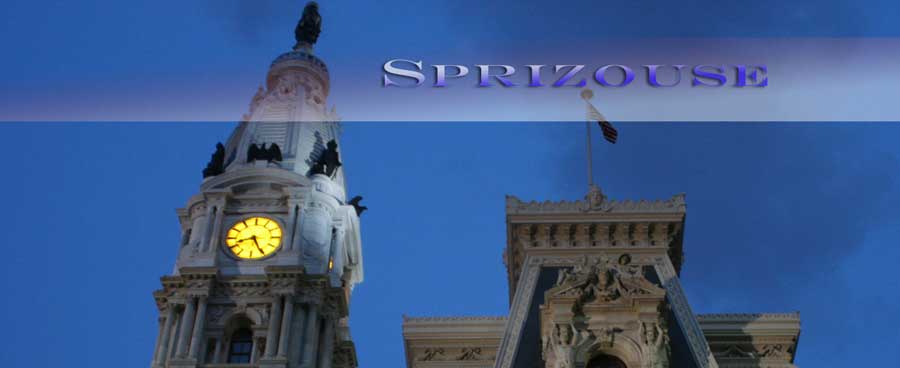
While the Seattle-based coffee giant isn't anywhere close to going out of business, it's obviously going through a lot of pain while shuttering 600 of its stores this week. What caused their problems and what could (or should) they have done to stop them? Well, the all-knowing Sprizouse is here to offer a solution, so I'm glad you asked.
Let's examine the two biggest problems Starbucks is facing: First, in the current economic situation, people aren't willing to shell out the money for a Starbucks coffee and instead they go to Dunkin' Donuts (or Wawa or 7/11 or whatever). Second, Starbucks has had some customer service issues and a perceived commoditization of their product... both of these issues are a direct result of rapid expansion. I'll get to the expansion problems in a moment, but let's first examine the price issue.
Joe Coffee-Drinker's annual savings by switching to Dunkin' Donuts or Wawa are obviously miniscule. To prove it, I took a quick poll of the stores in my area to get the following prices for a large coffee:
Starbucks - $2.45
Dunkin Donuts - $2.10
Wawa - $1.49
And here are the prices for a large latte:
Starbucks - $4.05
Dunkin Donuts - $2.89
Wawa - doesn't carry lattes.
Assuming Joe Coffee-Drinker buys a large coffee every weekday morning at Starbucks but decides to switch to Dunkin to save himself some money, how much money will Joe Coffee-Drinker save? A whopping $87.50 annually (250 working days x $0.35). By going to Wawa, he'd save a little more ($250) while a switch from Starbucks' lattes to Dunkin's saves him $290 (assuming he drinks one latte every workday).
As you can see, the savings really are miniscule so why are people switching? Perceived costs! It's a marketing manager's dream. The current perception that Starbucks' coffees and lattes are expensive luxury items is hurting the business, but that perception was also the very thing that made Starbucks successful in the first place. Hmmmm... what to do? Well let me hold off on that for a minute, and take a look at Starbucks' other problem: growth.
Complaints about Starbucks' quality of service, the cleanliness of its stores and brewing skill of its associates began arising a few years ago. Most of this can be attributed to rapid growth. Starbucks prided themselves on high quality coffee offered in a great atmosphere with supreme customer service. All three of those selling points suffered when the company grow so rapidly that they couldn't keep the stores staffed with the type of employees they wanted -- unfortunately for Starbucks there are only so many Anthropology majors out there. Suddenly staffed with less talented, less committed workers the whole "Starbucks experience" suffered. The average brewing skill of the associates dropped, and the service level (and the quality of the lattes themselves) became rather uneven from store to store and employee to employee.
How could Starbucks have stopped all this? With controlled growth and a better overall growth strategy.
Middle grade products in nearly every retail industry are disappearing and dying. American consumers now either want the absolute cheapest item, or a high-priced, luxury item. The middle ground is where clothing retailers like The Gap and JC Penney tried to make a living (and where are they now?). If Starbucks had recognized this a few years ago, they could have seen that rapid growth presented not only a problem, but also a solution. Their growth should have included a "Starbucks Express" or "Starbucks Lite" or something along those lines. With a lock on the "Luxury Coffee" market and European Cafe atomosphere they should have expanded with tiny stores, staffed by one or two people, containing a very limited menu. In addition to solving the rapid-growth staffing problems, this new "discount" brand would have automatically sandwiched Dunkin' into the dreaded middle ground. And finally, smaller, cheaper stores would also not commoditize the main stores' coffees, service levels and atmosphere.
There's certainly a lot more that needs to be considered in promoting this kind of growth strategy: an examination about using the Starbucks name, for instance. Cheaper, smaller locations with a Starbucks label might still be associated with high prices... or a cheaper brand of service and coffee might damage the main brand's cachet. Either way, it would seem a sub-branding strategy is in order but those details could be worked out down the road.
In any case, since Starbucks isn't currently paying me to think about their problems and I haven't had a cup of coffee yet, I'm not going to offer up any more strategies here. What I will do is go get me some of that really yummy, really cheap Dunkin Donuts coffee and save myself hundreds of thousands of dollars in the process.








